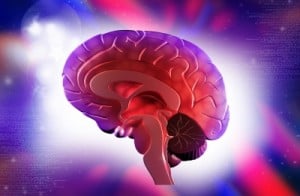At this point in the school year, finals are just around the corner. Academic success relies greatly on several contributing factors related to your child’s overall health. Read this list of 4 ways neurotherapy can benefit your child before the hardest academic challenge of the year!
Neurofeedback Improves Sleep – Getting enough sleep is essential to academic success. The brain’s ability to focus is severely compromised when a child is not sleeping well, impacting their ability to focus during class. So much important verbal information can be missed and they may have difficulties completing assignments in the classroom. Memory is also greatly impacted when a child is not getting enough sleep. In order to really remember the lessons learned in class, a child must get a good night of sleep before and after the class. Consistency within your child’s schedule will help your child succeed. Therefore, enforcing a consistent bed time is highly recommended in order to ensure your child gets the sleep he or she needs. Neurofeedback helps train the brain to function healthily, and with the proper treatment protocol, will help improve a person’s ability to fall asleep and have high quality sleep with minimal restlessness.
Health Coaching Improves Nutrition Quality – Did you know that nutrition directly impacts brain function? Therefore, if your child is not getting the daily nutrients the brain needs for optimal functioning, your child’s academic performance will be directly influenced. Nutritional needs can vary depending on the child, as everyone’s brain and body is different. Additionally, if your child suffers from certain disorders, such as ADD/ADHD, poor nutrition can negatively impact the child’s brain, causing symptoms to appear or worsen. Utilizing the help of a health coach can assist you in meal planning for your child to help ensure academic success.
Neurotherapy Reduces Stress and Anxiety – The pressures from academics can provoke a child to experience heightened levels of stress and anxiety, particularly during finals. The effects from stress and anxiety can directly impact how a student performs. The various methods of neurotherapy can help keep a student on track while simultaneously reducing and/or eliminating stress and anxiety. Neurofeedback can be utilized to teach the brain to function calmly, even during moments of high stress, reducing anxiety. With the help of a health coach, achieving excellent nutrition can actually reduce levels of stress and anxiety. When the brain receives the nutrients it needs to function healthily, the brain more equipped to manage stress and anxiety. Talk therapy can help a child express their worries and concerns in a safe space, an effective method of reducing stress and calming anxiety.
Neurofeedback Enhances Overall Performance – During finals, the academic demands on a child are heightened substantially. In addition to the normal workload, studying for exams and completing final projects can be overwhelming to say the least. If your child has trouble focusing, the additional time required to complete all of these tasks may seem impossible. Even if your child performs well academically throughout the year, the extra pressures during finals can be daunting and difficult. The main concept of neurotherapy is that the better the brain functions, the better the person functions. Neurofeedback teaches the brain to work at an optimal level, improving overall performance. Whether a student struggles all year round with academic challenges or the child simply needs a boost during finals, neurofeedback will improve brain function and enhance performance.
Image courtesy of Ambro at www.FreeDigitalPhotos.net









